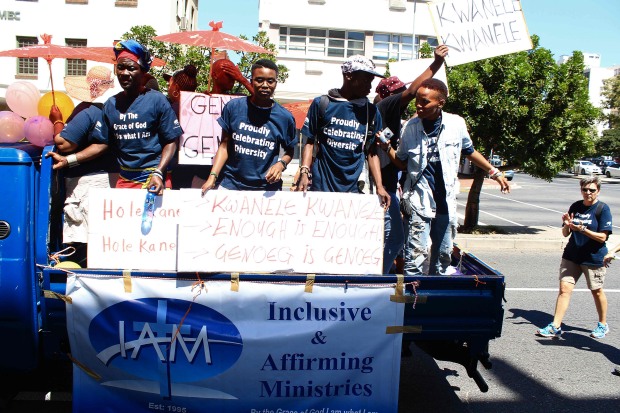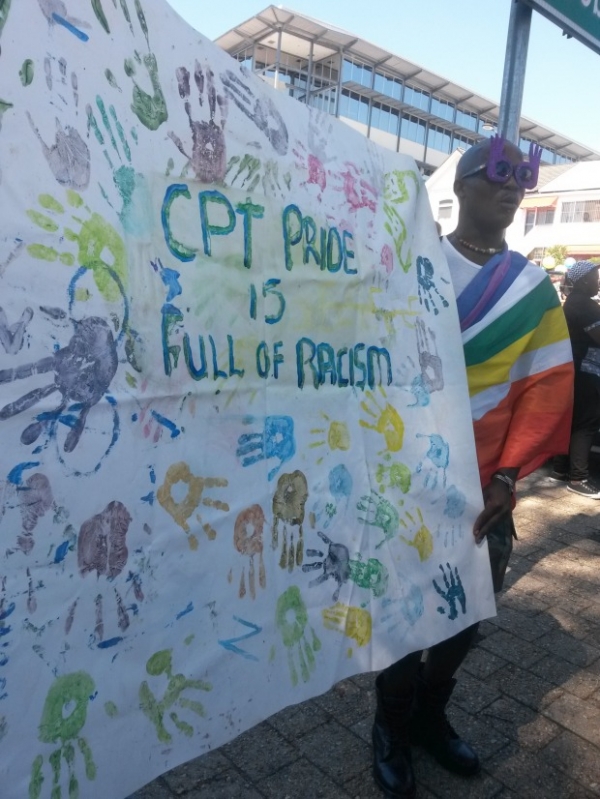

“Alternative Inclusive Pride” activists hold a banner accusing the mainstream gay pride march of being racist. Photo by Barbara Maregele.
2 March 2015
For 25-year-old, Aphiwe Mikana from Gugulethu, raising awareness about what it means to be lesbian is more than brightly coloured floats or a day of dancing through city streets.
“I don’t always feel safe walking in the street. The guys who sit on the corners have told me they are going to rape me or they grab me while I’m walking. I can’t walk hand-in-hand with a girlfriend in the township,” a teary-eyed Mikana said.
Mikana and about 50 other people danced to drum beats, chanted and held up posters at a busy intersection in Green Point on Saturday, just before the main Pride march took place nearby.
The protest action was organised by a group of gay and lesbian activists who have accused Cape Town Pride of being “racist” and exclusionary.
The on-going disputes around the Cape Town Pride festival led the group to launch an “Alternative Inclusive Pride” last week. They hosted several events which were held at the same time as those organised by the twelfth annual Cape Town Pride festival this year.
Three of the group’s events, which included seminars, parties, a movie night and talks, were held in Khayelitsha and Gugulethu.
However, in a statement released ahead of the protest on Saturday, the group said they would not be boycotting the Pride march, but instead called for a community-driven movement to be involved in the planning of future gay festivals.
“Kwanele! Enough with the privileged, white, gay, male images presented to us by Cape Town Pride in its current form. Kwanele with single-struggle politics and lack of intersectional understanding of oppressions,” it read.
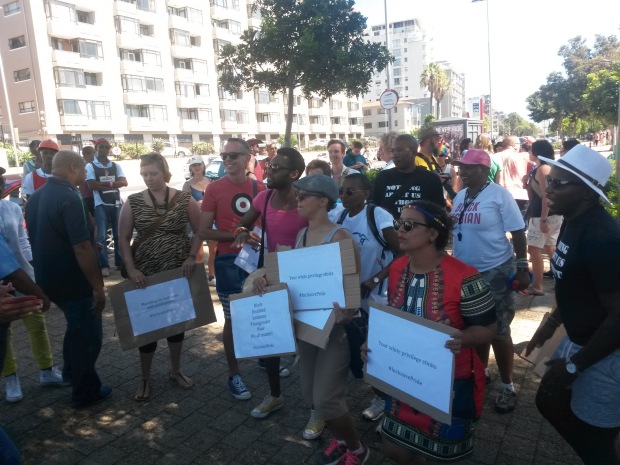
During the protest, Makana who also works for the lobby group Free Gender, said the festival was not a true reflection of the gay community in poor areas.
“I came out in high school. To this day my parents still think I’m going through a phase and I’ll get over it one day. That is not going to happen. We rather want them to have events that recognise that hate crimes are still happening in the townships.
“I cant say that people from Constantia don’t have issues as well, but we need to talk about it in order to put an end to hate crimes,” she said.
Free Gender chairperson Funeka Soldaat, said the protest ahead of the Pride march was a step towards unifying the gay and lesbian community in the province.
“Protesting at the event was the last resort for us, we’ve been engaging with the organisers for a while, but they chose not to listen,” she said. Soldaat who is also a member of the Alternative Inclusive Pride group, said they received an overwhelming response to their events.
“The response over the past week has been amazing. Homophobia has always been a big issue and culture plays a big part in that. The murders and assaults of lesbians in the townships shows this. These are the issues that need to be addressed not people walking around naked in the streets,” she said.
Cape Town Pride director, Matthew van As, rejected the groups claims, calling their protest racist.
“I don’t agree with the method they used. I find it slightly racist because Pride doesn’t see colour or gender, anyone is welcome to get involved and you can choose not to join in. They were given until the 20 December to add any new events to our calendar, but we didn’t get anything.
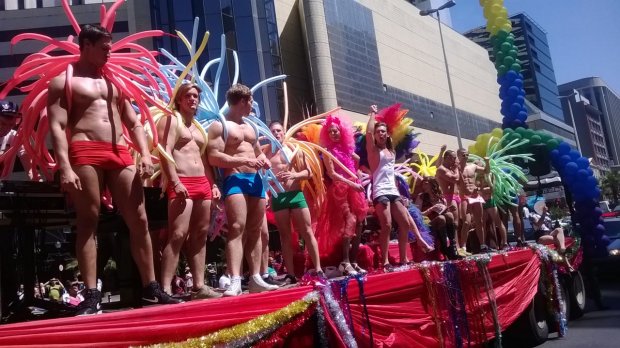
“About two weeks before Pride, we were contacted to say there was unhappiness about the calendar. It was too late for us to change things a week before a festival,” he said.
Van As said they will be hosting the third annual Khumbulani Pride in Gugulethu where their focus is lobbying against homophobia in the townships.
After an hour of protesting, some members of the Alternative Inclusive Pride joined the street march still holding their posted and chanting “Nothing for us, without us.”
During the Pride march members of the outreach programme, Health4Men, held up large banners and posters, urging people to use condoms.
Commentating on the protest, team leader Ronnie Ngalo, said the problems surrounding Pride were not new.
“I have in the past raised concerns about bringing different cultures together in Cape Town, but it still hasn’t happened. We are one of the first countries to run gay and lesbian marches, so we need to choose a platform and be one. The march should go to townships as well where our fellow gay people are, and are not protected and supported,” he said.
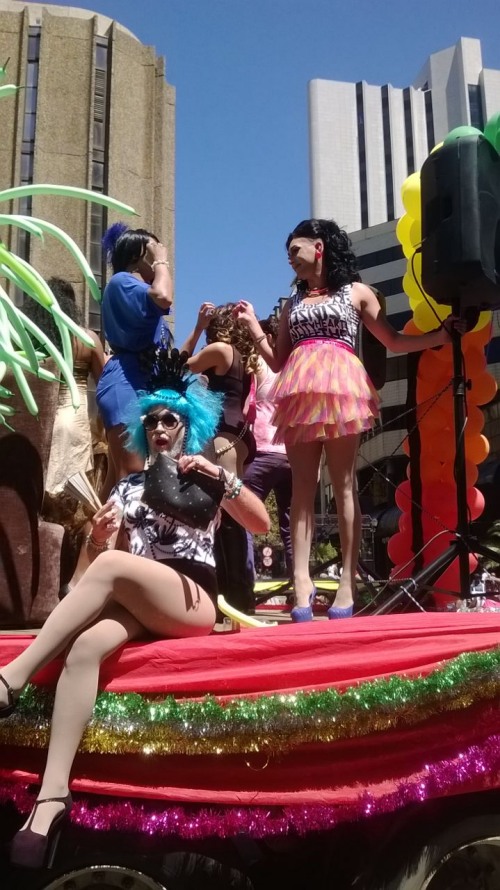
Student, Elaine Venter from Wellington said while it was her first time at Pride, she was glad to see activists calling for diversity.
“There are still many people who experience discrimination on a daily basis. While many people say South Africa is gay-friendly, but wherever we go there are still people bringing us down. This is my first year at Pride,” she said.
Also joining the Pride march on Saturday, senior pastor at the Good Hope Metropolitan Community Church, Rev Beulah Durrheim, said: “Our church is about inclusivity where anyone is welcome. We need to be here for people to know that spirituality and sexuality can be together. The impression I get from the Alternative Pride group is that a few people are coordinating Pride which only reaches a particular market and that for us doesn’t sit right. It should be accessible to all.”
